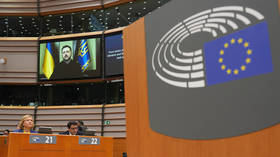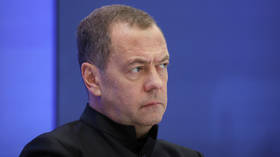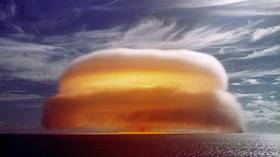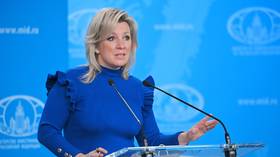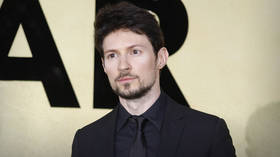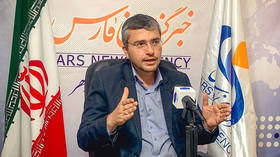US anti-terror policy 'creates hundreds of new enemies'
The new US tool for fighting terrorists, the drones, creates more enemies than killing ‘bad guys’, Ibn Khaldun Chair of Islamic Studies at the American University in Washington, D.C., Akbar Ahmed, told RT.
Arguably the world’s leading authority on contemporary Islam
believes the US authorities greatly underestimate the tribal nature
of most of the Muslim societies in their war on
terror.
RT:Post 9/11 the US has been all over the map chasing terrorists. But then you see terror growing right here in the US in a well-educated area like Cambridge Massachusetts, referring to the Boston bombers. What slipped through the cracks in America’s understanding of terror?
Dr. Akbar Ahmed: This is a new phenomenon and a challenge. When people say home-grown terrorism it really means Muslim youth – those who grew up in the US and have turned against the US. I believe that several causes are to be identified. You have the problem of youth growing up in a culture, not of their own. Many of these people are from the Middle East, south Asia or, in the case of the Boston bombers, from the Caucasus. They grow up in a culture, which sort of accepts them and sort of doesn’t.
RT:But by so many accounts they did fit in.
AA: As I said, they fit on one level, but on the other level they don’t. They are hearing around them so much talk of islamophobia, someone attacks their religion, Koran, not necessarily on the religious level. So their response isn’t necessarily an Islamic response, but also a cultural one. The same phenomenon can be seen in the UK where you have many of these young British-born Muslims being accepted, playing cricket, going to pubs and so on, and yet being involved in terrorism. There aren’t many such cases, but these cases, I believe, are consequences of several failures of society, which is unable to integrate them fully, and their own community not being able to detect who they are and give them a certain direction.
RT:Apparently Tamerlan Tsarnaev didn’t fit into FBI’s profile of who would be a jihadist. Can we talk about the danger of profiling in law enforcement?
AA: I was in charge of law and order myself in the tribal areas of Pakistan, in Balochistan, which is one of the most difficult areas to administer. We were taught when the cat is about to jump and when it will jump. When you profile people broadly, for example all Middle East-looking people, and you only look at them then your mentality is that a blue-eyed or blond-haired cannot be a terrorist. But as we know terrorism comes in every form and every shape. We’ve had many terror attacks in the US by people who weren’t Muslim. Timothy Mcveigh is just one famous example of that. So the aim is to prevent violence whoever commits it.
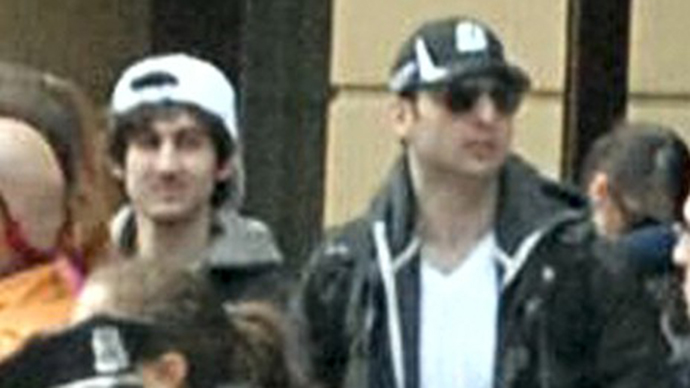
RT:Why do those people, many of them presumably well-read and educated, find what they find in Islam?
AA: First, the assumption that education means a person is compassionate, sensible, pluralist or inclusive is not really correct. Secondly, what is coming from Islam is equally not correct. Perhaps the most terrible example in history is what the Germans did to the Jewish community in Germany in the 1930s and 1940s. From 25 to 30 percent of SS personnel were PhDs or had higher education decrees. Where did that leave their humanity? They were completely unsympathetic to the Jewish community. So we have to be very careful making these generalizations. Very often these people act as they do, which is completely unacceptable, they come out of their own broken societies and distort the understanding of Islam.
RT:What difference have drones, the new US tool for fighting terrorists, really made?
AA: In my opinion the debate around drones has just started. There is one side of the debate, which is the most problematic, and that is how the Americans see the usefulness of drones. What they don’t see is an impact drones are having across the world on local tribes, local communities. You may have 1, 2, 3 intended targets killed, the so-called bad guys, but then you have 100, 200, 300 completely innocent people killed including women, and children. There are many reports confirming this. That creates hundreds of new enemies.
RT:It seems that the main point of discussions around drones was whether or not they should kill American citizens. The fact it could kill innocent people without due process remained sidelined. What was your impression?
AA: My sense was that the Americans were very ethnocentric when dealing with this issue. They aren’t really connecting this to people across the world, who are being killed in drone strikes. But I’m sure that this debate will continue. The Americans have great social conscience. If you pick up an idea and they feel there is injustice they pick it up themselves and they go for it. But right now this isn’t happening. Also we have to understand that when you have a place like Waziristan, which is the focus of my book. A small place, really impoverished, tribal society, no hospitals, no roads, no education facilities, and you are hit with drones again and again. They’ve ended up by killing over 300 people in drone attacks in Waziristan alone. Think about the impact it could have on a small society. It just rips it apart. In that vacuum you will certainly have violent angry killers, as you call, who then go down to Karachi and other bigger cities and blow themselves up. Once they killed a ten year old boy, a Pakistani army officer, in a mosque. They killed him and said ‘Now you know how we feel and what we go through every day’.
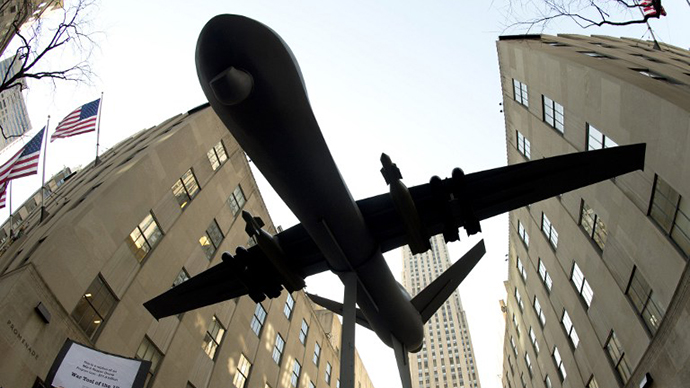
RT:In your book ‘The Thistle and the Drone’ you write how the US props up central governments, which then go out and fight tribes. It’s true for Afghanistan, Pakistan, Yemen. Is it because the US doesn’t understand tribal society or just doesn’t want to understand?
AA: The war on terror, as I see it, resembles a triangle. I call it a ‘triangle of terror’. You have the US at one point, you have the central government at another point and the third point is tribal society. So far in the discussion we don’t hear much about the tribal society. Very often we see the US and central governments in alliance, but what they don’t realize, and this is a very important point, that terrorist are coming out of societies, which have nothing to do with supporting them. In fact, they are the victims now – they’ve been killed by the drones, by their own armies, and they’ve been blown up by suicide bombers. Tribal society lies underneath a vast number of Muslim population from Morocco across North Africa to the Middle East and to the Caucasus. The Code of honor, the code of hospitality, the code of revenge – all these things are very important and defining these societies. Not so much Islam but the tribal code. And there you have a kind of an internal tension, which hasn’t been resolved after centuries.
RT:The Pakistani government condemns the US strikes in very strong terms but at the same time allows them. That kind of a two-faced policy, is it sustainable?
AA: No, it isn’t. I called it duplicities in my book. On the one hand they are telling the Pakistani people that they have nothing to do with that. On the other hand they align with Americans to go ahead with the drone strikes. The Pakistani PM has many times said that he would object to it, that he would go to parliament and say that the Americans shouldn’t do these terrible things. But he goes ahead with that. The people of Pakistan aren’t stupid. They understand the game. But again you ask yourself does it help law and order, does it help peace and stability, and does it help check the men of violence? And the answer is ‘No’.
RT:Why isn’t Pakistan saying the real ‘No’?
AA: I think it’s because they have a weak government. They want to stay in power. It takes a lot of courage to stand up and say to a superpower ‘Guys, we are your friends, but you are messing it up for us’.
RT:Afghanistan past 2014, is it going to move back to the rule by tribes?
AA: That’s a very important question. I asked someone who lived there and worked with the tribes. The country is going to face a lot of challenges both internally and regionally.
RT:If the structure of their society is tribal maybe it’s a natural way for them to go back to tribal society?
AA: Don’t forget what happened to Afghanistan in the last few decades. First, there was the Soviet invasion, which disrupted all the old structures – chiefs, the elders, the religious structure, the central government, the King of Afghanistan. So you have a tribal society in a state of destruction. Then 1990s with the Taliban, which brought even more disruption. Then you have 9/11 and the American invasion with more disruption. Three decade later this tribal society is different, the tribal code has mutated, Islam has mutated. And from those mutations you see violence, violence, violence.
The statements, views and opinions expressed in this column are solely those of the author and do not necessarily represent those of RT.


